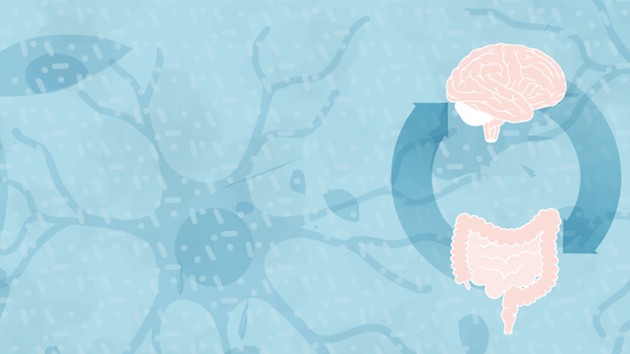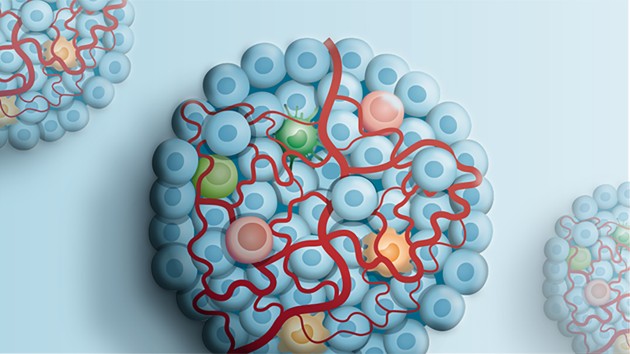Collection |
Collections
Filters
-
Collection Type
-
-
Collection |
 Overcoming challenges in rare genetic diseases
Overcoming challenges in rare genetic diseases
Rare genetic diseases affect more than 300 million people worldwide, so collectively are a major health burden.
Image: Artvile/Getty images -
Collection |
 Key Advances in Medicine 2019
Key Advances in Medicine 2019
The Key Advances in Medicine 2019 collection, a collaborative effort from the eight clinical Nature Reviews journals, offers expert insight into the most important discoveries made in 2018, and is an essential resource for students, physicians and clinical researchers.
-
Series |
 Circadian rhythms in endocrinology and metabolism
Circadian rhythms in endocrinology and metabolism
In this article series, Nature Reviews Endocrinology examines the mechanisms linking circadian rhythms with endocrinology and metabolism, and the implications of circadian dysrhythmia for diseases of the endocrine system.
Image: Jennie Vallis/Springer Nature Limited -
Collection |
 Genetic and epigenetic insights into autoimmunity
Genetic and epigenetic insights into autoimmunity
Autoimmunity is an underlying cause of many diseases. This collection of Research, Reviews and News articles from several Nature journals covers the latest advances in genetic and epigenetic research into autoimmunity and autoimmune diseases.
Image: Susanne Harris -
Collection |
 Key Advances in Medicine 2018
Key Advances in Medicine 2018
Much like our oceans, the world of clinical and biomedical research is vast, fast-paced, dynamic and full of unanswered questions. In 2017, numerous advances were made that could change the tide of efforts to fight disease. The Key Advances in Medicine eBook distils the major discoveries made in 2017 and highlights trends to look out for in 2018.
-
Collection |
 Neuroendocrine function in the hypothalamus
Neuroendocrine function in the hypothalamus
A collection of articles from Nature Reviews Endocrinology on the role of the hypothalamus in endocrine regulation, covering aspects of obesity, metabolism and reproduction.
Image: Emma Carter -
Collection |
 The obesity epidemic: molecular and clinical considerations
The obesity epidemic: molecular and clinical considerations
To mark World Obesity Day on 11 October 2017, the editors of Nature Reviews curated a collection of articles that describe the latest efforts to understand the molecular mechanisms underlying the condition against a complex backdrop of factors, as well as advances in treatment.
Image: Laura Marshall/Macmillan Publishers Limited -
Collection |
 2017 Nobel Prize in Physiology or Medicine
2017 Nobel Prize in Physiology or Medicine
The 2017 Nobel Prize in Physiology or Medicine was awarded to Jeffrey C. Hall, Michael Rosbash and Michael W. Young for their elucidation of the molecular mechanisms controlling circadian rhythm. Their pioneering work in Drosophila uncovered the internal oscillators, or clocks, that synchronize cellular metabolism and organismal behaviour to the light/dark cycle to generate biological rhythms with 24 hour periodicity.
Image: Macmillan Publishers Limited/The Nobel Foundation/Imagesource -
Collection |
 Endocrine disruption
Endocrine disruption
A collection of articles from Nature Reviews Endocrinology on the biological effects of endocrine-disrupting chemicals and implications for human health.
Image: Macmillan Publishers -
Collection |
 Gut-brain axis
Gut-brain axis
Collection of articles from the Nature Research journals covering advances in understanding the gut-brain axis.
Image: Laura Marshall -
Collection |
 Bone biology and disease
Bone biology and disease
A collection of articles from Nature Reviews Endocrinology and Nature Reviews Rheumatology on the pathogenesis, diagnosis and treatment of common and rare bone diseases, and skeletal complications associated with communicable and noncommunicable diseases.
Image: Nicola Hawes/Macmillan Publishers Ltd

 Rare Cancers Collection
Rare Cancers Collection